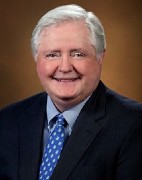contact
Jade Sutton
Administrative Assistant II
A Review of Dental Ethics at Chairside
| Date: | Tuesday, March 7, 2023 |
| Time: | 8 p.m. to 9:30 p.m. |
| Location: | University of Maryland School of Dentistry - Live Webinar via Zoom |
| Tuition: | The Dental Professional: $59 |
| Credits: |
1.5 CDE credit hours - lecture The University of Maryland School of Dentistry designated this activity for 1.5 Continuing Dental Education hours. |
| Target Audience: | Dental Professionals |
| Presented by: | David S. Hancock, D.D.S., FACD |
| Conflict of Interest: | Nothing to disclose |
Register Here
Speaker Biography
 David S. Hancock, D.D.S., FACD was born and raised in an academic family. He attended the University of Arizona for his undergraduate education.
David S. Hancock, D.D.S., FACD was born and raised in an academic family. He attended the University of Arizona for his undergraduate education.
Dr. Hancock attended Northwestern University Dental School, completing his degree in 1976. He began private practice in Scottsdale, July 1976. His private practice areas of interest were general and restorative dentistry, dental occlusion, and TM disorders. Interest in failed TM treatments led to years of study in orofacial pain with Jeffery Okeson DMD at the UKY orofacial pain center and Dr. Terry Tanaka. He has completed 200 + head and neck dissections with Dr. Tanaka.
Dr. Hancock is a member of the American Academy of Orofacial Pain, the America Equilibration Society, the IADR /AADOCR and AADSM. He is also a member of the ADA Standard Committee on Dental Products, Working Group 9, and chairs the subgroup 9.69 dealing with adhesives/cements for CADCAM generated restorations. Dr Hancock is honored to hold fellowship in the American College of Dentists and the Academy of Dentistry International.
Dr. Hancock is a perpetual learner. In his spare time, he enjoys exploring the White Mountains of Arizona and golfing with his three grandkids.
Course Description
Dr. Hancock will review the five fundamental principles that form the foundation of the ADA Code: patient autonomy, nonmaleficence, beneficence, justice, and veracity.
Course Objectives
At the conclusion of this course, participants should be able to:
- Recognize the profession has codes of ethical behavior.
- Increase one's understanding of the ethical principles involved in clinical dilemmas.
- Realize multiple ethical principles are present in most clinical/ethical dilemmas.
- Examine central practice values as described by Ozar, Sokol and Patthoff.
